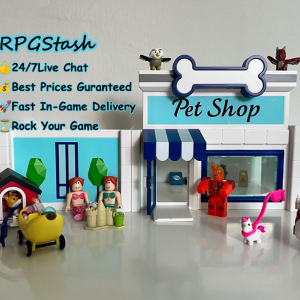In the original Diablo 2, end-game builds often centered around specific unique weapons and armor. The introduction of Runes and Runewords makes them an important part of the arsenal. Obtaining the rune itself, as well as the perfect item to insert it into, also becomes another goal for the player. The most sought-after runes have also become valuable trading currencies, allowing players to obtain the best gear.
Runes and runewords remain a cornerstone of gameplay, enhancing your items and abilities. They are indispensable for both personal itemization and participating in the online trading market. In this article, we'll delve into how Diablo 2 Resurrected Runes and runewords function, the advantages they offer, and how you can craft them to optimize your character's power.
WHAT ARE DIABLO 2: RESURRECTED RUNES?
Runes are versatile items found throughout Diablo 2: Resurrected, obtainable across all difficulty levels: Normal, Nightmare, and Hell. However, certain areas are more efficient for farming runes, and we'll discuss those later in this guide.
When inserted into socketed items, runes imbue them with various bonuses and attributes. However, the true power of runes lies in combining them in specific sequences to create potent runewords. These unique combinations grant special properties to your equipment, enhancing their effectiveness in battle.
Additionally, runes serve another crucial purpose: gear repair. When faced with a shortage of gold for vendor repairs, runes offer a cost-effective alternative. By placing a Ral rune and your damaged gear into the Horadric Cube and transmuting them, you can restore your equipment to a usable state.
Furthermore, runes can be upgraded in the Horadric Cube through a process known as "cubing up." By combining three runes of the same type, you can create a rune of the next higher level. For example, transmuting three El runes yields one Eld rune, allowing you to obtain higher-level runes without relying solely on drops.
Each rune possesses a rarity value, ranging from the common El to the exceedingly rare Zod, influencing their drop frequency and acquisition likelihood. Consequently, runes often serve as a form of currency in Diablo 2 trading circles. Runes like El to Lem are considered low-value and common, while Pul to Gul fall in the mid-value range. Meanwhile, Vex to Zod runes are prized as the most valuable. Should you acquire runes of mid to high value, exercise caution and consider their worth carefully!
HOW TO USE DIABLO 2: RESURRECTED RUNES
Crafting runewords is a pivotal aspect of mastering Diablo 2: Resurrected, especially for those aiming to conquer the challenges of Hell difficulty. However, for beginners, understanding the intricacies of runewords can be daunting, and mistakes can lead to the loss of precious runes.
To successfully create a runeword, you must first acquire the correct combination of runes and ensure they are equipped in the appropriate item. Some runewords are exclusive to specific weapon or armor types, and the item must have the exact number of sockets required by the runeword. For example, the runeword "Stealth" (Tal + Eth) necessitates an item with precisely two sockets—no more, no less.
Furthermore, the D2R Items you're socketing the runeword into must be of grey or white quality, devoid of magical properties (blue items) or rare, unique, or set attributes (yellow, gold, or green items).
When socketing the runes, ensure they are placed in the correct order, as there's no room for error—once the runes are inserted, they cannot be rearranged.
It's crucial to select the appropriate item category for socketing your runeword. For instance, "body armor" refers to garments worn on the body, while "melee weapons" exclude bows, crossbows, and orbs. Additionally, specific runewords like "Insight" are exclusive to certain weapon types, such as polearms.
Crafted runewords boast variable stats, much like other loot drops. Using a superior-quality base item increases the likelihood of obtaining the best possible roll.
Consider utilizing ethereal bases, especially for equipping runewords on mercenaries' equipment. Ethereal items offer enhanced stats but cannot be repaired. However, mercenary weapons and armor do not degrade, allowing for optimal performance without durability concerns.
Notably, runewords can be equipped on any character type, granting them the associated bonuses unless stated otherwise. This flexibility allows for diverse builds and opens up a plethora of engaging playstyles. For instance, a Sorceress equipped with the "Beast" runeword can transform into a Werebear, adding depth and versatility to gameplay.






